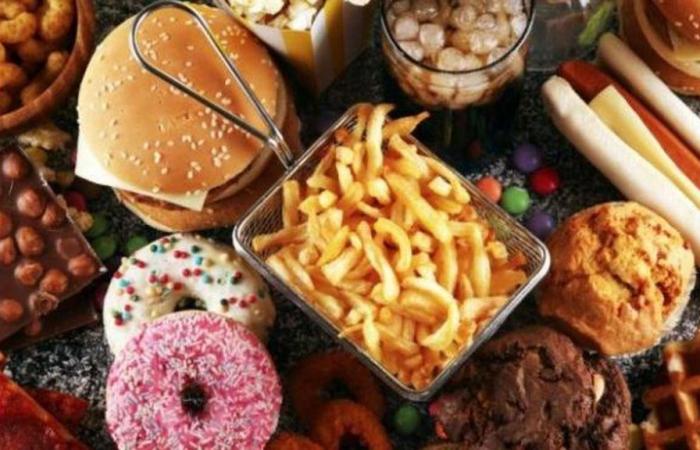Ultra-processed foods (UPF) can be as addictive as tobacco and alcohol. It emerges from the results of an international research published in the medical journal British Medical Journal. The study highlights how those who continuously consume refined carbohydrates and foods rich in fat, such as chips, carbonated drinks, snacks and industrial snacks, He finds them not only gratifying but also enticing, to the point of creating an addiction on a par with nicotine.. For this reason should be sold with warnings similar to those on tobacco, according to the nutrition scientist who first coined the term.
What are ultra-processed foods?
I Ultra-processed foods derive from various industrial transformation processes e sThey have been specifically designed to have a long shelf liferesult easy to eat and quickly consumed or preparation. This category includes snacks such as chips, packaged snacks, gummy sweets, but also cereal bars, ready-made second courses based on animal or vegetarian proteins, canned soups and noodles, and fizzy drinks. Typically these foods are rich in colourings, food additives, flavourings, sugars, fats and salt, poor in fiber and nutrients.
What disorders do they cause?
The analysiscarried out by experts in food addiction, nutritional physiology and behavioral addictions, examined two systematic reviews comprising 281 studies from 36 countries different, using the Yale Food Addiction Scale (YFAS) which assesses 11 symptomatic criteria for substance use disorder, including the ability to control intake, craving, abstinence, and continued use despite negative consequences. Based on the YFAS resultsexperts have found that 14% of adults and 12% of children showed dependence on highly processed foods. For comparison, the percentages are similar to those of tobacco or alcohol: 14% for alcohol and 18% for tobacco in adults, but the level of addiction in children, according to the authors, the percentage of 12% is “unprecedented”.
Processed foods and the threat to our health
«UPFs are increasing their dominance in global diets, despite the risk they pose to health and the increase in chronic diseases,” he said Professor Carlos Monteiro of the University of São Paulo al Guardian, in the context of the International Congress on Obesity. «UPFs are displacing healthier, less processed foods around the world, and are also causing a deterioration in the quality of diets as well as causing a Of pandemic of obesity and other chronic diseases like diabetes” explains.
Despite the obvious danger, these products continue to be sold in supermarkets and fast food outlets, and are the most consumed by most people. In the UK and US, for example, more than half of the average diet is now made up of ultra-processed food.
32 types of adverse effects
The high Consumption of these foods has been linked to 32 types of adverse effects. The most compelling evidence includes a 50% increased risk of death from cardiovascular problems, a 48-53% higher risk of anxiety and other common mental disorders, and a 12% higher risk of type 2 diabetes.
Monteiro and his colleagues first used the term UPF 15 years ago when they designed the “Nova” food classification system. This evaluates not only the nutritional content, but also the processes to which the food is subjected before being consumed. The system divides foods and beverages into four groups: minimally processed foods, processed culinary ingredients, processed foods, and ultra-processed foods.
Monteiro declared to the Guardian that we are now so concerned about the impact UPF is having on human health that studies and reviews are no longer sufficient to warn the public about the health risks. «Public health campaigns such as those against tobacco are needed to curb the dangers of UPFs». «Tcampaigns would include the health dangers of UPF consumption». «Advertising for UPF products should also be banned or severely limited and front-of-pack warnings similar to those used on cigarette packets should be introduced.”
«The sale of UPF in schools and health facilities should be banned and there should be a strong tax on UPF.with the revenues generated used to subsidize fresh foods” explains Professor Monteiro, also at Guardian who also draws parallels between UPF and tobacco companies. «Both tobacco and UPFs cause numerous serious illnesses and premature mortality; both are produced by multinationals who invest the enormous profits they obtain in aggressive marketing strategies and anti-regulation lobbying activities; and both are pathogenic (dangerous) by design, so reformulation is not a solution »he states.





